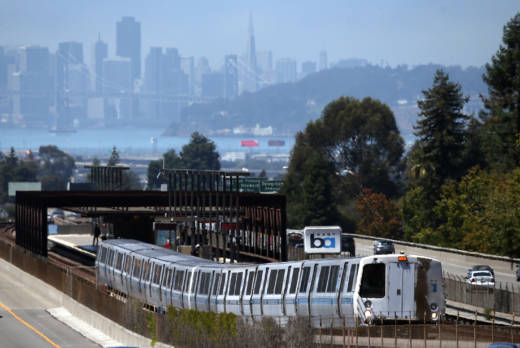As it currently stands, the policy would cover all employees and board members except those who qualify for exemptions on medical or religious grounds. The measure would also apply to contractors whose employees work on BART property.
BART says 833 of its roughly 4,000 employees, or 21% of the workforce, have not yet received COVID-19 shots. Saltzman, who represents a transit district that includes parts of Berkeley and Oakland, said last week that unvaccinated transit workers pose a threat to the health of their colleagues and to riders, and could jeopardize the agency's ability to run reliable train service.
Simon, whose district encompasses slices of Contra Costa, Alameda and San Francisco counties, said passing the policy would send a strong message to BART employees and patrons.
"I need them to know, and also the women and men and children connected to our employee circle, that we're doing everything possible to prevent preventable death and hospitalization," Simon said at Thursday's board meeting.
But a number of public commenters at the meeting, including several who identified themselves as BART police officers, as well as the leader of one of the transit agency's biggest unions, voiced opposition to the policy.
John Arantes, president of the BART chapter of SEIU Local 1021, which represents mechanics and custodians, praised the agency for the wide range of measures it has taken to protect workers and riders during the pandemic — including making vaccines available at its larger work sites. But he said the new policy infringes on workers' rights.
"It would be a shame to now take the extreme position to mandate that the workforce be vaccinated and force them to make the choice between losing their jobs or give up their right to freedom of choice," Arantes said.
He urged the agency to consider other alternatives, including requiring testing for unvaccinated workers. Without such a choice, he said, "I am very concerned with the district's ability to continue to provide safe service for our patrons."
The policy approved Thursday does not include an option for frequent testing for those who decline to get vaccinated.
Contra Costa board member Debora Allen, who cast the only "no" vote on the policy, said she took issue with that lack of flexibility, and argued that the agency should not infringe on its employees' medical decisions.
Allen added that she got fully vaccinated this summer after initially being skeptical that the vaccine's protection would be more robust than the antibodies she acquired from contracting the virus.
"I think each person should have the right to research and make their own medical decisions as I did without threats from their employer of losing their job," she said. "So I come down on the side of every person making their own choice as to these medical treatments."
